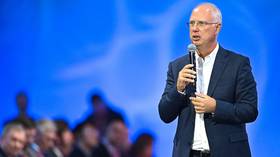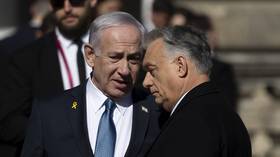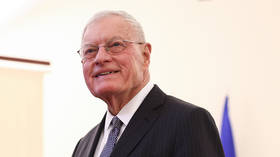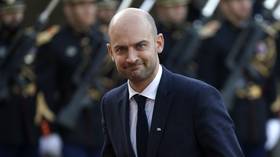Cash generator in St. Petersburg
Billions of dollars worth of deals are to be hammered out at an annual forum in Russia's second city. Foreign direct investment and global security will be key discussion points at the St. Petersburg Economic Forum.
Despite its significance, the mood is sober this year at the St Petersburg Economic Forum. The forum’s budget was slashed by nearly 20% because of the economic crisis, so the lavish parties of last year are out of question, though the organizers say this should not reflect the level of representation at the forum.
About 2,000 participants including heads of state, ministers, business executives and scientists are expected to take part in the discussions over the next few days.
The main topic remains the same for the events of this scale worldwide – the global economic crisis, but despite other economic forums, the focus of discussions in St. Petersburg is expected to be shifted to the developing economies, countries like Russia, China, India, Brazil and others.
The St. Petersburg Economic Forum has always been a prime location for Russian and foreign investors. Last year, the event set a record, with almost $15 billion worth of signed contracts. Whether or not it is going to be upheld this year is still an open question, though expectations are a bit lower so far this year.
As the host of this summit, Russian President Dmitry Medvedev pointed out that the main goal of the St. Petersburg Economic Forum is to provide a platform for decision-makers to see what has been done, and what is yet to be done, to counter the global economic crisis.
The Russian president is expected to open the first plenary session of the forum on Friday, and his speech is expected to be dedicated to the first lessons of the crisis and the need to change the existing economic and financial architecture to make it more balanced and fair, taking the interests of all players into account.
Once again, Russia will be proposing the creation of more local and global reserve currencies, making the Russian ruble a local reserve currency.
“Although there are other reserve currencies such as the Euro, the Pound, the Yen, still a lot depends on the situation with the US Dollar,” Medvedev said.
“You know, we have our own point of view on this matter, which, incidentally, I presented a year ago at the Saint Petersburg International Economic Forum. Our viewpoint is that the world today needs more reserve currencies, and this is not because the US Dollar is bad or the Euro is not good enough. The current situation itself suggests that there should be more currencies, which banks, individuals and countries could invest in,” said President Medvedev in his interview with the American CNBC TV channel.
In this interview, Medvedev also described himself as a ‘reserved optimist’. He said that there are plenty of measures that the Russian government has to take in order to deal with the economic downturn. He also observed some positive signs that the situation is improving a little bit, and oil prices rebounding to above the $60 mark, as has been witnessed over the last few weeks, is just one of them.













